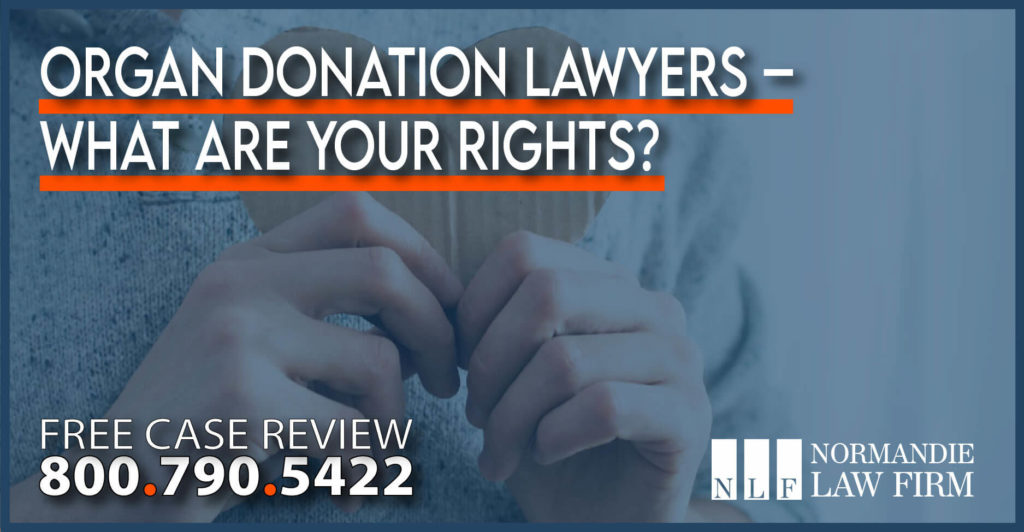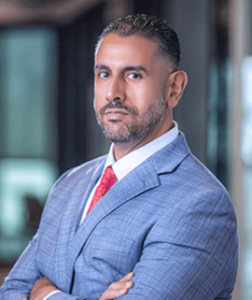
Losing a loved one is, without a doubt, a very traumatic experience. For many families, organ donation becomes a major topic either a few months or weeks before the death of their loved one (in case of illness and expected deaths) or just a few hours before or after the death of their loved one (in case of sudden incidents). Whatever the case, organ donation can be a very difficult topic for families.
Without a doubt, organ donation can be life saving for those who are on years-long donation waiting lists. Because organs are so delicate, it is essential for hospitals and organ procurement organizations (OPOs) to work fast to ensure that the organs are harvested in a timely manner so that they remain viable.
Unfortunately, family might be unable to access the information that they need regarding family donations. In fact, they might even be rushed to sign documents giving consent to organ donation even though they do not want to go through with the donation. If you have questions about organ donation laws or your rights as family of the deceased, do not hesitate to reach out to the experts here at our law firm as soon as possible. Our lawyers are ready to guide you every step of the way and provide you with the legal help that you need.
What is Organ Donation?
Organ donation is the process of removing an organ or tissue from one person (the donor) and placing it into another person (the recipient). This occurs because the recipient’s organ has been damaged or is failing (this can be either through injury or disease, for instance). Organ donation occurs after the registered donor loses his or her life. The organs and tissues that can be donated include the following: heart; liver; kidney; pancreas; lungs; intestines; corneas; middle ear; bone; skin; bone marrow; heart valves; connective tissue; vascularized composite allografts.
There is also living donation, in which a healthy individual can donate a kidney or part of a healthy liver, for example.
There is no doubt that organ donation can save many lives – it essentially gives second chances. For example, the kidneys of a donor can save or heal two different patients. Similarly, one donated liver can save or heal two patients on the donor waitlist. The same applies for the lungs and heart, for example, which can save a total of three people.
Organ donation is a decision that is taken by the individual. Unfortunately, if the family was not aware of the decision or does not respect the decision, then there could be issues.
Most Frequently Asked Questions
Below, we will address some of the most commonly asked questions.
- Is there an age limit to become an organ donor? Anyone over the age of 13 can register him or herself on an organ donation registry. However, even those under this age can become donors (with parental consent). There is no such thing as being too old to donate organs.
- Can family oppose organ donation? If an adult has recorded his or her decision to become an organ donor after death (e.g., he or she registered as a donor or told a doctor to put in on the medical record), then this decision must be honored given that it remains medically possible. This decision cannot be overrun by family. If the donor is still underage, then the family can successfully oppose donation (because family must consent to donation).
- Can family force organ donation? If an adult has recorded his or her decision to not be an organ donor, this decision must be honored.
- What if the patient didn’t have clear wishes regarding organ donation? If the patient did not record the decision to either be a donor or not be a donor, then the final decision will be up to the family. The hospital cannot force organ donation or donate organs without the family’s consent.
- Do organ donors get substandard medical care? Many families believe that their loved ones will not get life-saving medical care just because they are organ donors. This is a very common misconception. Once a patient is declared brain dead, he or she cannot survive without the help of medical equipment. The patient will need to be removed from life support to start the organ donation process.
- Can the donor’s family meet the recipient? Donation and transplantation are confidential. After the process is complete, the donor family and the recipient will receive very general information about the other. Identifying details are never shared unless consent has been given. If both parties desire to meet the other, then the involved organizations can arrange contact between the parties.
- What are the relevant laws surrounding organ donation? In California, based on A.B. 3211 (which went into effect on January 1, 2019), organ donation is default. Therefore, if a person does not wish to be a donor, then he or she must say so.
If you have further questions about organ donations and your rights as the family of the donor, do not hesitate to reach out to our law firm as soon as possible.
Common Causes of Family Refusing Organ Donation
After the death of a loved one, the surviving family might outright refuse organ donation. Some of the reasons why family might want to refuse organ donation might include the following:
- Being in denial that their loved one is brain dead (or outright rejecting the diagnosis)
- Being unsure of the brain death diagnosis
- Believing that a miracle could occur (that their loved one will suddenly regain brain activity)
- Being afraid of the organ trade as well as being unsure destination of the organ (i.e., questioning where organs are going and whether recipients deserve them)
- Being religious (including the belief of body integrity after death)
- Being unsure of their loved one’s wishes regarding organ donation (i.e., the donor never discussed donation with family)
Autopsies are typically performed to identify the cause of death. When the cause of death is already clear, autopsies are not likely to happen. When the cause of death is unclear, the death occurred after a crime, or foul play is suspected, then autopsies are conducted. Typically, organ donation does not interfere with autopsies. Depending on the specific situation, the autopsy might occur before or after the organ donation. In fact, the donation might even be split, so that recovery of organs/tissue occurs both before and after the autopsy.
A recent Appellate Court decision has brought attention to organ donations and autopsies alike. In January 2022, the court ruled in favor of the plaintiff. The late 2017, the plaintiff’s daughter was declared brain dead due to strangulation injuries. The plaintiff strongly objected the withdrawal of life support and organ recovery because he wanted to preserve evidence of foul play as we wanted to request an autopsy on his daughter’s body. He sued both the hospital and the donor network for the intentional infliction of emotional distress. Unfortunately, he lost the initial case. Of course, the plaintiff appealed this decision. On the appeal. The plaintiff argued that the defendants exercised outrageous conduct by planning to recover the organs without consent, removing hum from the hospital after he objected to the donation (giving him only a few minutes with his daughter before she was removed from life support), and going through with the organ and tissue recovery without permission. The appellate court sided with the plaintiff.
If you are in a similar situation and are in need of legal help for a matter related to organ donation, do not hesitate to contact the lawyers here at our law firm as soon as possible. If you are in need of legal assistance with a matter of family member organ donation, our lawyers can help you better understand transplant laws and the rights of family members. Do not hesitate to contact the experts here at our law firm as soon as possible.
Paying for Legal Services Related to Organ Donation
We understand the struggles that come with losing a loved one. We are dedicated to helping families completely free of charge. We work Pro-bono on legal services related to organ donation. We offer organ donation assistance for family members of the deceased. Whether you are looking to take legal action or simply want to learn more about the law pertaining to organ donations, we can help you.
Of course, because we work Pro-bono on organ donation cases, you and your family will not have to pay anything whatsoever. You can contact us without having to worry about any fees.
Contact Us Today
If you have further questions about the rights of surviving family members in regard to organ donation, do not hesitate to contact the experts here at our law firm as soon as possible. Here at the Normandie Law Firm, our lawyers have decades of experience handling different types of claims and can definitely provide you with the guidance that you need. We are proud to offer free legal services, which include both free consultations and free second opinions. During these free legal services, our lawyers will be available to answer all your questions, address absolutely all of your concerns, and provide you with the guidance that you need. If you would like to benefit from our free legal services, contact us today.
Our lawyers are ready to help you every step of the way.











